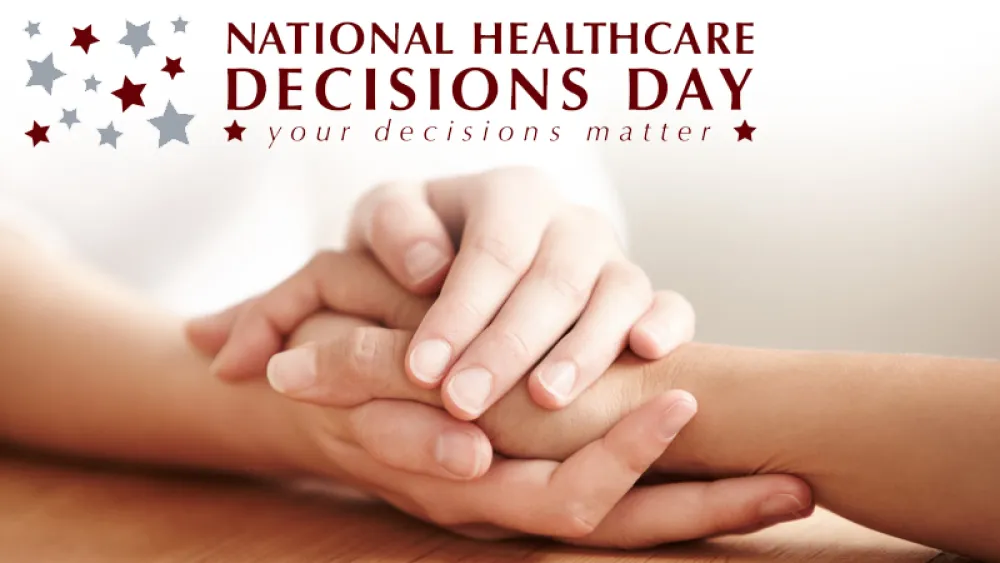Today's Medicine
Healthcare Decisions Day: The Most Powerful Conversation You Need to Have
Published: April 16, 2023

April 16 is Healthcare Decisions Day. It’s a day when we talk about the importance of having advance directives – the paperwork that lets health care providers know your medical wishes and appoints someone to speak for you should you be unable to speak for yourself.
The most common advance care planning documents are:
- Medical Powers of Attorney for Healthcare
- Living Wills
- Nebraska Emergency Treatment Orders (NETO)
- Iowa Physician Orders for Scope of Treatment (IPOST)
But aside from the actual paperwork, there are other things that are actually the most important part of this day.
The first is a conversation. Or maybe several conversations.
Having “The Talk"
It’s not always easy to talk about end of life or critical care, but we need to feel comfortable enough to open up a dialogue with the people we care about. Talk to them about what's important to you and what your wishes may be should a critical event arise.
You may want to think about questions like:
- Would you want to stop treatment if it was going poorly, or if serious problems arose?
- Would you want to be on life support?
- Would you make these same choices knowing your quality of life would be seriously diminished?
The reason this is important, is that medical providers are going to look to your loved ones for help and guidance with decisions. And even if it's written down in one of these documents, sometimes medical situations are blurrier than we would like them to be. Having a conversation and talking about your values, your beliefs, and the quality of life you want to lead with those who love you can help guide them in the case of an emergency.
Making a Choice
And as important as the discussion itself may be, appointing a medical power of attorney is just as important. A power of attorney designates who will speak and make decisions regarding your care on your behalf.
It’s a really important decision because you want to appoint someone who will know your wishes and will be able to carry them out for you. Their decisions need to reflect those you would make for yourself, not what they want for you.
And while I know parents often want to be fair and not single out one child over another, I really recommend to everyone that you choose only one person to hold power of attorney. In times of crisis, family members may disagree over the best course of action, causing conflict and heartache. Appointing a power of attorney should be about your wishes being heard and easing the burden of decision-making. It’s why that document is so important to medical providers – they will know who to talk to and know what you would want for your own health care.
Let the Papers be Your Guide
So how do you even start having these conversations? That’s where the paperwork really comes in handy.
Advance directives give you a roadmap to the types of questions medical providers may want answered. But while an advance directive answers lots of questions, they don’t cover all the bases. That’s why it’s important to be comprehensive when it comes to talking about your beliefs. Sit down, talk about the form and fill it out, but take a broader look at your overall health wishes with your conversation. That’s the part that matters the most.
As you age, your health may change, so be sure to check in with your loved ones as your quality of life preferences evolve.
If you need help starting or guiding your conversations, or need help filling out an advance directive, speak with your Methodist Physicians Clinic primary care provider. You can also speak with chaplains at Methodist Hospital and Methodist Women’s Hospital or call the Social Workers at Methodist Jennie Edmundson Hospital.


